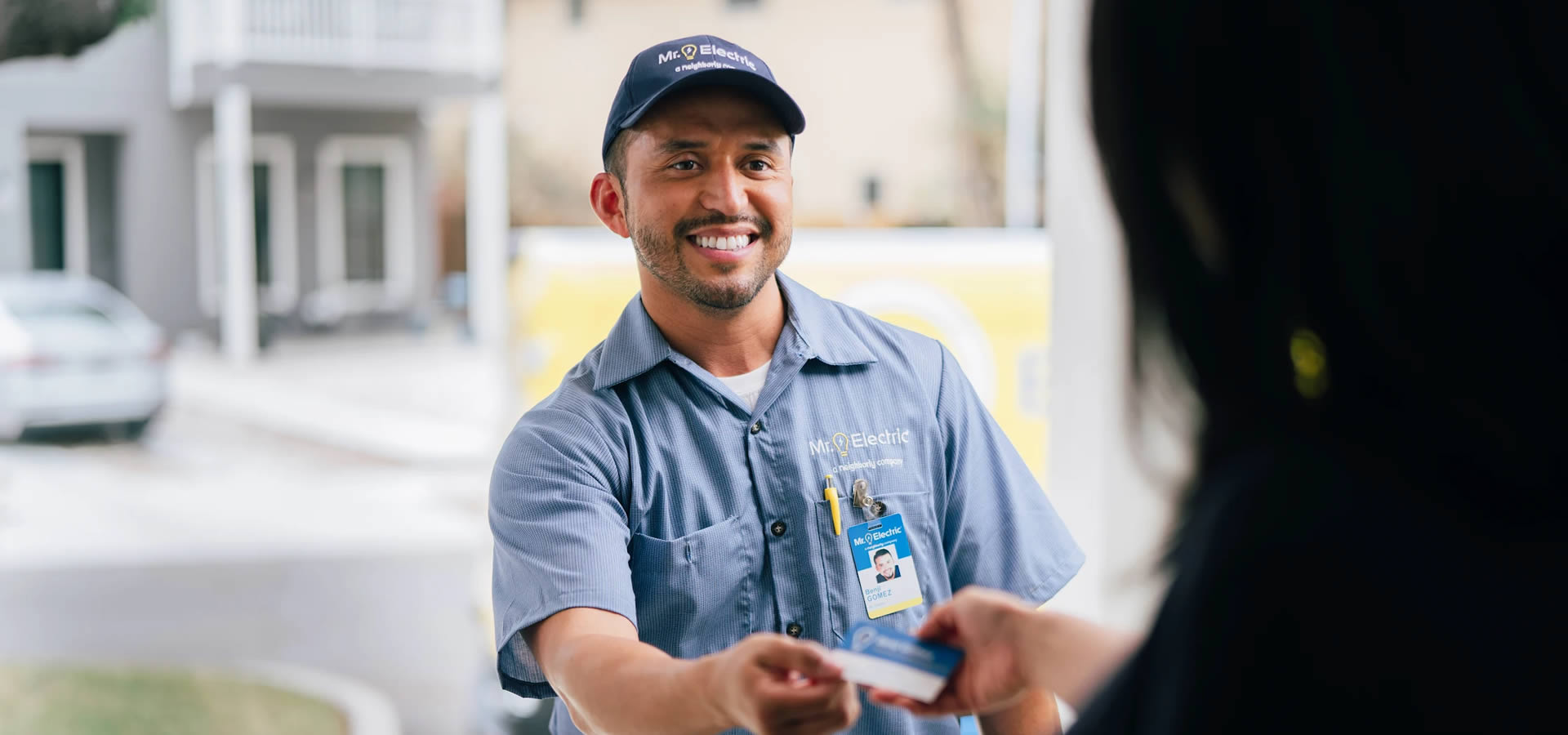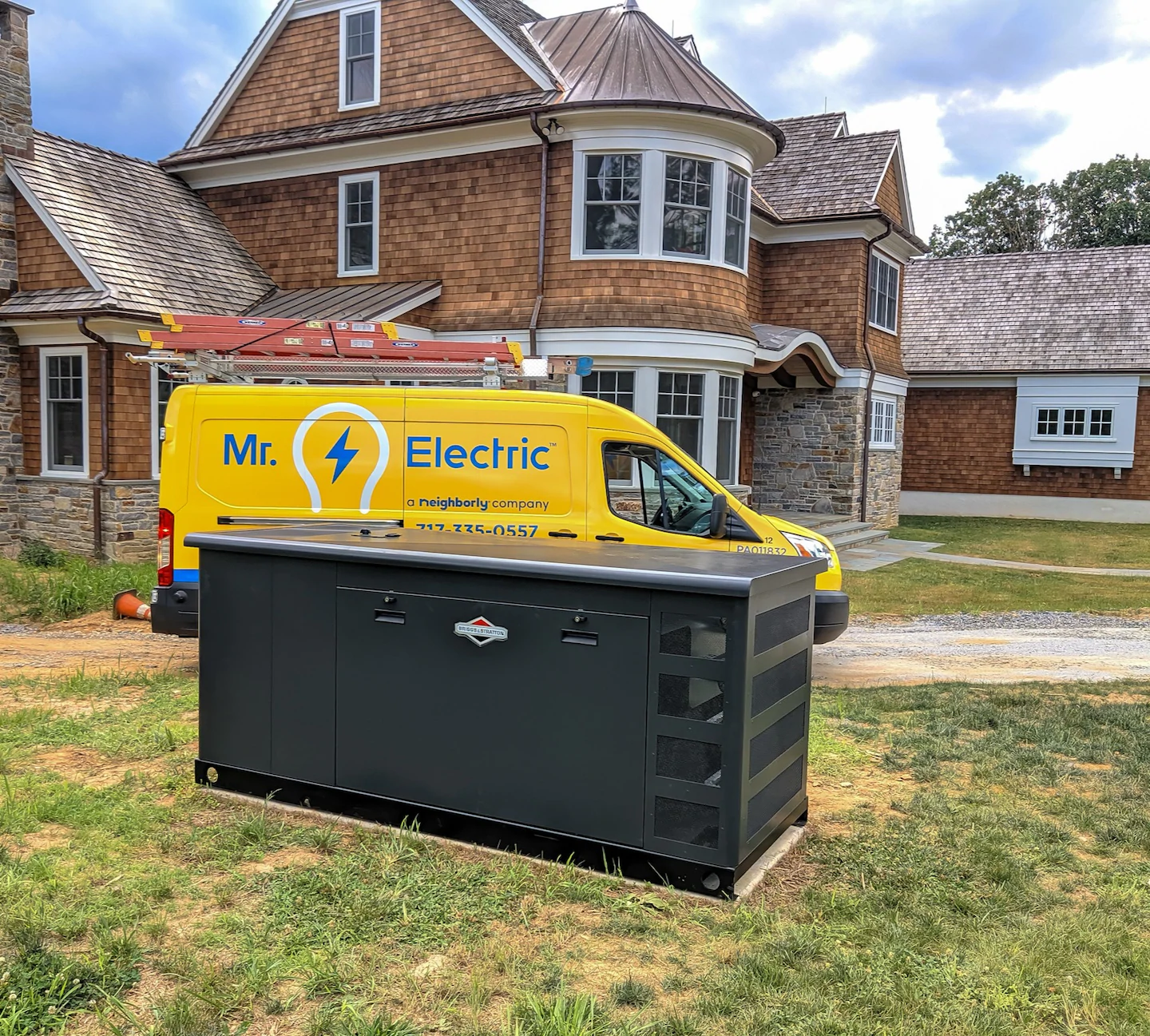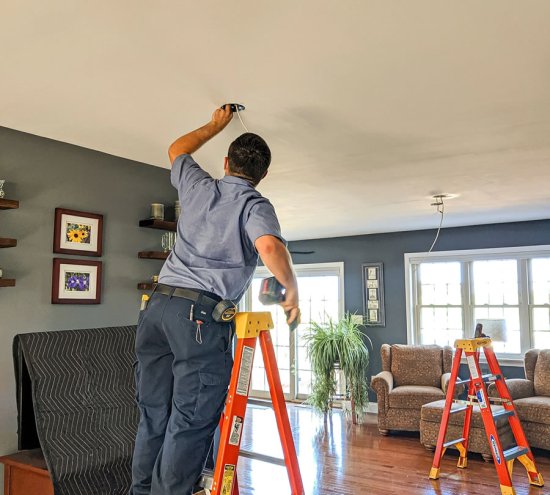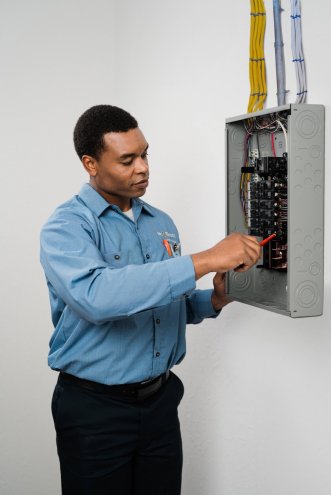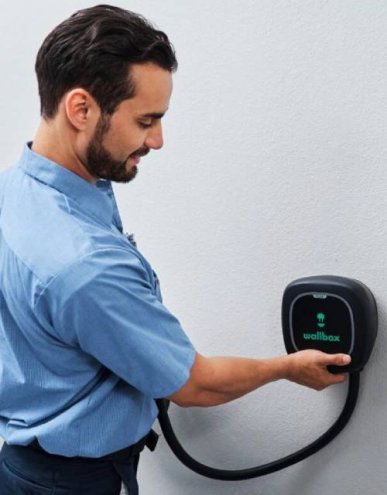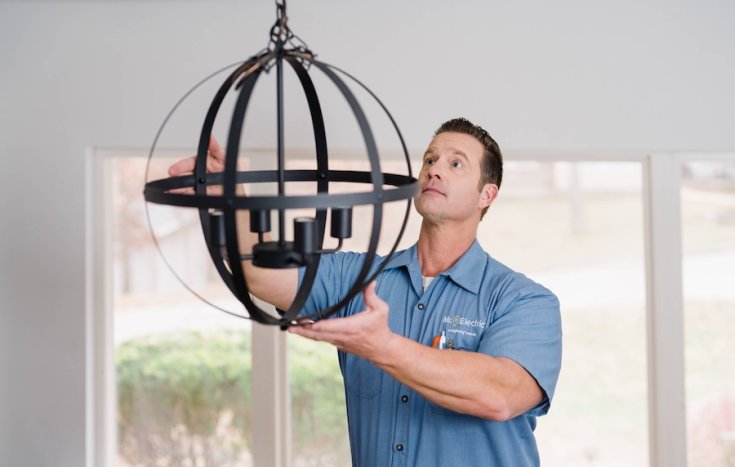Power outages don’t just disrupt your day—they can put your safety and comfort at risk. In Salt Lake City and surrounding areas, unpredictable weather and infrastructure challenges mean that losing power is a real possibility. For homeowners who want peace of mind, a home standby generator is a practical and increasingly essential solution.
Selecting the right standby generator isn’t as easy as grabbing the first model you see online, however. It requires thoughtful consideration of your home’s power needs, local conditions, and generator installation requirements. In this brief article brought to you by Mr. Electric, we walk through the key steps to help you make a confident and informed decision.
If you'd rather consult a certified electrician, then call Mr. Electric to get in touch with a local professional. Our team is on standby to take your call and arrange a face-to-face meeting or onsite visit for as soon as possible.
Why a Standby Generator?
Unlike portable generators, standby generators are permanently installed outside your home and kick in automatically when the power goes out. They’re hardwired into your home’s electrical system and offer seamless and uninterrupted energy when you need it most. More specifically, here’s what makes standby generators worth the investment:
- Automatic activation: No need to fumble in the dark during an outage.
- Whole-home or partial backup: Customize power delivery to your entire home, or to essential systems.
- Reliable fuel supply: Natural gas or propane are readily available in most areas.
- Added home value: Standby generators can increase property value and marketability.
Tip 1: Know Your Power Priorities
Start by asking yourself what you need to power during an outage. For the typical homeowner, the essentials include:
- Refrigerator and freezer
- HVAC system
- Medical devices
- Lights and outlets
- Security systems
Others may want to keep the whole house running smoothly; that includes everything from kitchen appliances to entertainment systems. Your answer will help determine the size and type of generator you’ll need.
Tip 2: Select the Right Size
Generators are measured in kilowatts (kW), and choosing the correct size is crucial. Undersized generators may overload and shut down while oversized ones cost more than necessary. A licensed electrician in South Jordan can calculate your home’s actual load requirements, but here's a general guide:
- 8-12 kW: Powers your essentials for a smaller home.
- 13-20 kW: Suitable for medium-sized homes with central air conditioning.
- 21-25+ kW: Ideal for larger homes or whole-house backup.
Tip 3: Consider the Fuel Source and Availability
Most standby generators run on either natural gas or propane. Natural gas is convenient if you already have gas service; you won't need to deal with refills. Propane, meanwhile, is preferred in areas without gas lines and will require a tank.
Tip 4: Choose the Right Transfer Switch
A generator’s transfer switch is what shifts your home’s power supply from the grid to the generator. There are two types:
- Manual transfer switches require you to activate the system yourself.
- Automatic transfer switches (ATS) detect outages and turn on your generator without you lifting a finger.
An ATS comes with a premium and is strongly recommended for homeowners looking for uninterrupted and hassle-free backup power.
Tip 5: Choose a Reputable Brand and Service Partner
Quality matters when it comes to standby generators. Leading brands like Generac, Kohler, and Briggs & Stratton offer dependable performance and strong warranties, but even the best equipment won’t deliver if installed incorrectly. That’s why partnering with a certified electrician who understands local conditions is just as important.
Tip 6: Hire a Certified Electrician for the Installation
A standby generator installation is complex and involves electrical, gas, and code compliance work. It’s not a job for weekend warriors or general handymen. A certified electrician will handle the sizing and wiring as well as the permit and compliance work. They will also make sure fuel connections are safe and secure.
Whether you need a new installation or are looking for reliable electrical repair service on an existing unit, the professionals at Mr. Electric have the expertise, experience, and equipment to help. Call or message us today to get in touch with a live representative.

